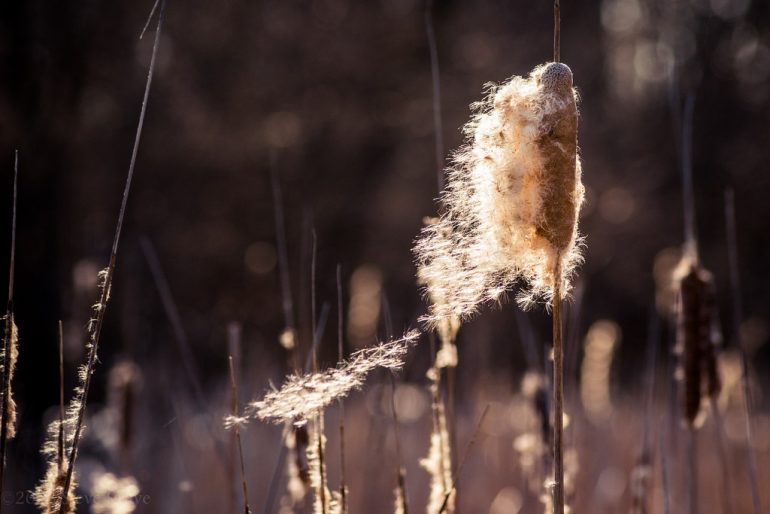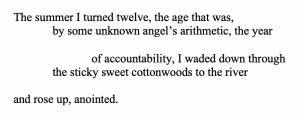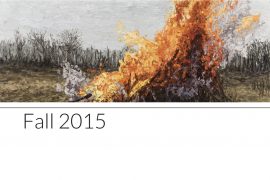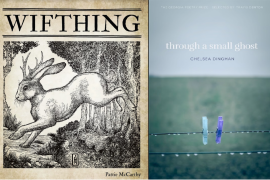Anemochory (Hyacinth Girl Press, 2016) and Season of Dares (Bull City Press, 2018) by Leah Silvieus
Leah Silvieus’s first chapbook, Anemochory, takes its title from the botanical noun meaning the dispersal of seeds, spores, or fruit by wind. Grammatically speaking, “anemochory” is an uncountable noun, meaning it can be used freely with numbers or the indefinite article, needing no plural ending because it contains its own plural (like the noun sugar or butter). Pair the uncountable nature of anemochory’s grammatical form with the diffusion of seeds by wind and you have a sense of both the mystery and the natural groundedness of Silvieus’s poetry.
i.
Anemochory is a highly liturgical collection, in that it has an order and that order evokes the sacred. Like a church service, it opens with the poem “Prelude” and closes with the poem “Benediction.” In between, the reader encounters elegies, nocturnes and aubades. These larger, conceptual poetic forms fill Anemochory with a recognition of the different work of poetry’s song and poetry’s own liturgy—songs for death and remembrance, for love in morning, for night. Together, these lyric forms bring a charged and sober music that frames the glass-edged imagism and attentive diction of the entire book.
The natural world both anchors Silvieus’s poems and provokes poetic investigation. Take, for example, “Prelude,” the entirety of which reads: “the maples’ spinning seeds float only / once broken / split / cast them again.” This macro-image poem pokes holes in what we can know about the natural world as well as how a poem “works” by asserting a fact about the spinning maples’ seeds—that they “float only / once broken”—and then offering a contradiction that is also a solution to the seeds’ brokenness: “split / cast them again.” The maple seed’s movement is not finished simply because it appears to be broken, and the agency embedded in “split / cast them again” gives a quiet imperative where one might not expect a command to be. “Prelude” speaks to both the gentle and the dramatic complications inherent in Silvieus’s poems as they witness the phenomenal world. Consider “Water Street Elegy,” a poem that opens with the vocative voice of address:
Here the natural intersects with more overtly human rituals—the elegy, the eulogy—and the sky’s agency “scours” funeral praise back to the elements of the river’s water, muck and dirt. In this dreamy, allegory-esque poem, the months and seasons take human form: “June nods yes. Summer / keeps on walking.” The idea of anemochory enters the poem both explicitly and metaphorically in “Water Street Elegy,” with “balloon, wing, plume” supplied as instances of items carried by the wind. Like a parable of a seed, the poem’s narrator takes a lesson from such scattering, noting at the poem’s close that “the world loves still / / to give, despite itself, its grief.” Like all parables, the conclusion itself is multivalenced and evades easy reading—is “despite itself, its grief” a subordinate clause, or is “its grief” the line’s direct object?
When we can sit with the uncertainty of this grammar, we share in the narrator’s question and the wondering nature of the elegy itself. In “Aubade Before Storm,” another poem ending on a question (and a dash), the speaker wonders: “Did no one tell us? We cannot hold / the drenched volume of our world –” And yet, Silvieus’s reader remembers the broken maple seeds, and the near-invisible agency of the hand that can “cast them again.” In their lyric attention, the poems in Anemochory ask the reader to participate in the uncontrollable storms and darkness, but also the human-made light and desire, of the world, even if all that can be given in the moment is a still and generous attention.
ii.
Silvieus’s second chapbook, Season of Dares, demonstrate the poet’s growing involvement with lyric form as the poems wade into waters where the reader feels the thrill of the pulling current. Jennifer Chang says of this book: “Like Hopkins, [Silvieus] knows the divine lies in the material world…like Dickinson, she knows the poetic line can be a powerful and immortal incision.” The collection’s first poem, “Vision,” demonstrates how Silvieus’s poems do not let either humanity or divinity easily off the hook. The poem begins:
“Vision” has all the makings of a prophetic narrative: an unknown angel’s arithmetic, a year of accountability, a baptism-turned-anointing. But despite the angelic mention, the speaker wades alone into the river, observing the “sticky sweet cottonwoods” with a naturalist-poetic gaze. “So forgive me,” says the narrator, “if I speak now / as I did then, as a child—mouth full // of split-rail, rust, riverstone—.” The geography and place of “Vision” shimmer in the poem with a full-blown sensual experience: tactile and olfactory (“the sticky sweet cottonwoods”), gustatory and visual (the reader can almost taste the “mouth full / of split-rail, rust, riverstone”). The one sense missing from the landscape, auditory, we receive in the speaker’s voice: that of a child’s. There is an uncanniness in this river-scene that smolders into fire as the child recounts witnessing, “the spirit descending // among the ridges teethed with flame.”
After the naturalist-driven details of the cottonwoods, rust and riverstone, the spirit’s descent and the subsequent fire leave the reader, also, in prophetic space of vision. What have we just seen? Is this actual fire? It is a vision, according to the poem’s speaker. This poem asks the reader to consider what “Vision” itself is, as a word of shifting definition, describing both an ability of the physical eye and a mystical, spiritual sight. The poem’s final lines break sight open to sound and, italicized, we hear the voice without knowing the agent: “prepare ye / prepare ye the way of the horde.” Readers familiar with the Old Testament Book of Isaiah or the New Testament Gospels will hear both the true rhyme and supplanting of “Lord” with “horde”—not one thing, this vatic voice declares, but many; not monolith, but a throng of persons or creatures. This first poem’s move to evoke, and then immediately revise, a prophetic text demonstrates that this is, indeed, a season of dares.
The natural world brims with visions and prophecy throughout Season of Dares, containing a plague-like visitation of wasps in “Equinox,” soothsayer birds in “Aubade with Septic Field” (“If only / we’d asked the birds, they would have told us / / this does not happen overnight”) and a second coming (“Parousia”). Two major feast days, Epiphany and Easter, also make appearances, and the collection’s final poem, “Matthew 19:14,” takes its title from the first Gospel. The Matthew reference (“Jesus said, ‘Let the little children come to me, and do not hinder them, for the kingdom of heaven belongs to such as these’”) highlights the narrative of childhood as a primary presence in (and illustration of) “season of dares.” The poem “Matthew 19:14,” dedicated “for the camp girls,” shows another example of Silvieus’s skillful weaving of disparate texts and textures, opening with the intonement “Heaven belongs to such as these” and, several couplets later, petitioning “bless those mouths red / with Fla-Vor-Ice, singing / / rise and shine and give God the glory / glory.” This is storytelling and song-singing at its best and most adept, ordered and sung like the syllables of Fla-Vor-Ice.
As a second collection, Season of Dares confirms Silvieus’s gift with lyric-narrative as its poems spring from the wider landscapes of western America and a Korean-American girlhood. Among elegies for daylight and field are poems addressing literal questions of race in America (“When Asked Where I’m (Really) From” and “So Blonde”) and the recognition of a self’s difference among others. In “Equinox,” the house is the family house: “Our house begins to crawl / with wasp heads, / budding like beads,” and the nouns inclusive first-person plural: “our sills,” “our eaves,” “our fingers,” “our lives.” Yet within the paper nests is discovered, “winding through the inner whorl / of paper, a strand / from the house’s darkest head, mine.” This poem names the speaker’s difference of hair color simply by describing what is found inside the wasps’ nest. And this seems to be one of the great strengths of Season of Dares, that it makes visible a Korean-American girlhood from among a horde of shining things and appearances, earthly and divine, and that the entwinement of biographies and geographies matter. Gerard Manley Hopkins’ lines, “these things were here and but the beholder / Wanting” could be read as a vocalization of the blessing Season of Dares speaks over its reader through its witness of (and engagement with) the speaker’s physical-spiritual world. Prepare ye the way, each poem in this bright and sonic collection bids.







